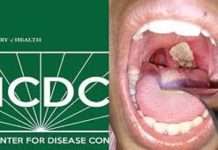-Calls for increased access to malaria medicines

To forestall escalation of malaria morbidity and mortality in the country, accelerated access to malaria medicines must be ensured by governments and all stakeholders, as it has been established that Nigeria recorded more deaths from malaria than COVID-19 in 2020, Prof. Wellington A. Oyibo, has said.
Oyibo, a professor and consultant medical parasitologist, at the ANDI Centre of Excellence for Malaria Diagnosis, College of Medicine, University of Lagos, Idi-Araba, Lagos, decried the neglect of malaria and other diseases in the pandemic, which he ascribed to the surge in mortality from the disease. Citing figures from the World Health Organisation, WHO Malaria Report (WMR) 2020, the total number of deaths from malaria was 95,418, while total mortality from COVID-19 as at 27 March, 2021, was just 2,039.
He warned against the continuation of this ugly trend, saying if the goal to achieve elimination and eradication of malaria in Nigeria will be a reality, then effective and coordinated responses in all realms from government, industry, research institutions, communities, media etc., are critical in attaining the targets.
The tropical diseases expert further condemned the priority given to COVID-19 over malaria and other diseases, describing it as a misplaced priority as data from the WMR 2020 showed Nigeria had 60,959,012 cases of malaria compared to a minute 162,388 cases of Coronavirus in the time under review.
“I urge government to restrategise her health allocation in tackling other diseases, as it was evident that malaria treatment was on the front burner of many African countries until April when the severe acute respiratory syndrome virus (SARS-CoV-2) became widespread and access to malaria commodities interrupted with reduced production and diversion of attention from malaria commodities’ production to COVID-19 commodities”, he stressed.
Speaking on the theme of their third year anniversary and unveiling of their antimalarial brand: “Malaria in the times of COVID-19: A forgotten Disease?” CEO, St. Racheal’s Pharma, Pharm. Akinjide Adeosun, said the organisation has got everything to be thankful for as they continue to grow in leaps and bounds every day.
He profusely appreciated all family members, friends and stakeholders, vendors, regulators, and the press, who believed and believing in them. ” As an organisation, we profusely thank God almighty for His steadfast love which never ceases. His mercies never come to an end, they are new every morning. From the bottom of my heart, I say a big thank you for your innumerable blessings showered on us.
“We are celebrating because we know our trajectory enshrined in our Big Hairy Audacious Goal (BHAG) – To be the No 2 pharmaceutical transnational company by 2035 is achievable. I urge you to demand for St. Racheal’s Antimalarial brand as your first choice anytime, any day you require malaria treatment. We are a proudly Nigerian organisation with multinational ways of doing things. Your patronage will help us create more jobs for our economy”, he explained.
Adeosun highlighted milestones achieved by the company in the space of three years to include: “Capital appreciation of +25% from N1.80k to N2.25k, increase in brands from zero in 2018 to seven NAFDAC registered antibiotics & antimalarial brands in 2020, double digit commercial growth of +22% in 2020 vs 2019, recruitment of sales representatives from major cities like Lagos, Ibadan, Abuja”, among others.
Going forward, the St. Racheal’s Pharma boss hinted on how they plan to consolidate and pursue their wildly important goals anchored on three strategic pillars of treatment; supplementation (nutraceuticals) and prevention.
Reviewing the pharmacological properties of the newly launched St. Racheal’s Antimalarial, made of artemether 80 mg and lumefantrine 480 mg, Pharm. Uche Ogbo, of the Department of Clinical and Biopharmacy, Faculty of Pharmacy, University of Lagos, said the ACT has well tolerated pharmacodynamics and pharmacokinetics and it is safe, very affordable and accessible to all.
She said since absorption of lumefantrine is highly influenced by lipids and food intake, she encouraged patients to always take the medication with some fatty food as soon as it can be tolerated.










